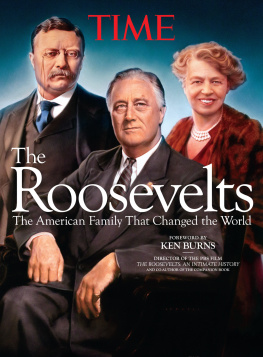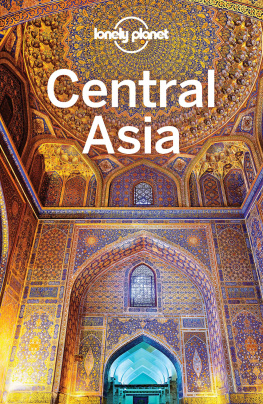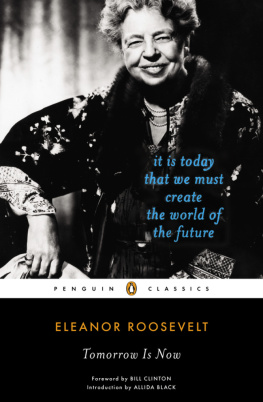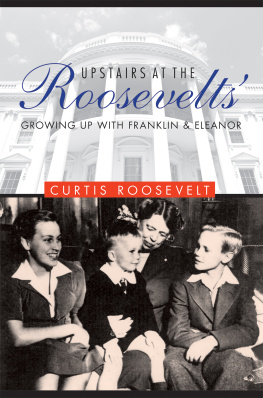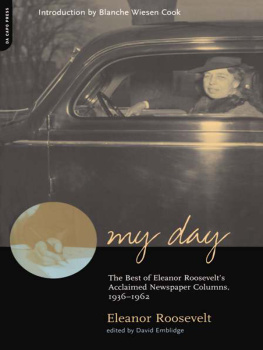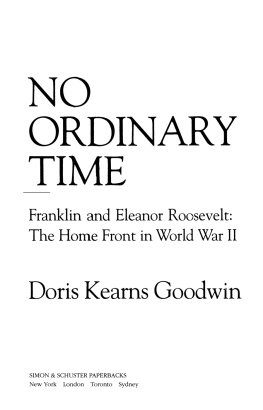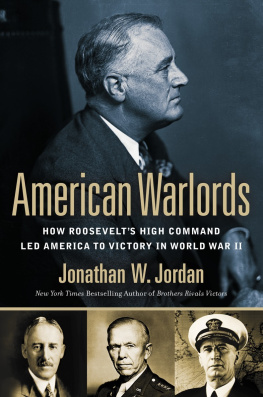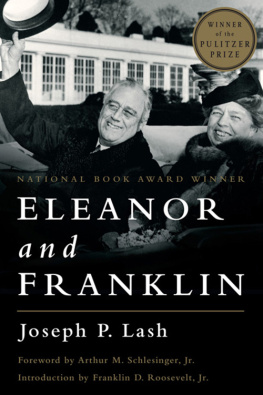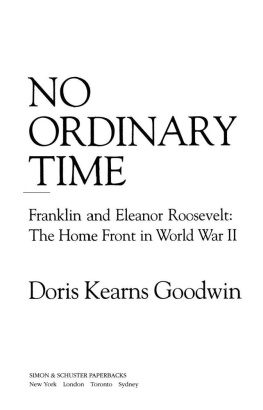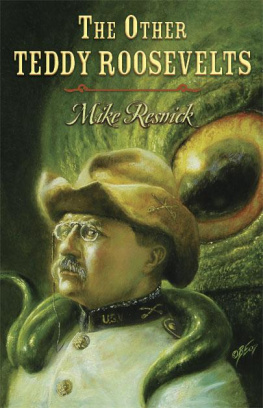

The
Roosevelts
The American Family That Changed the World
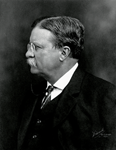
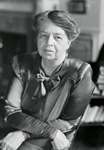
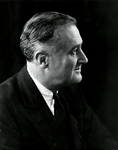
CONTENTS
- Foreword
By Geoffrey C. Ward and Ken Burns - Introduction
By Richard Lacayo - The 20th-Century Express
By Richard Lacayo - A Strenuous Life
A Timeline - The Self-Made Man
By Kathleen Dalton - The Police Commish
By Richard Zacks - Charging into Fame
One Crowded Hour - Birth of a Superpower
By Paul Kennedy - How to Shrink the World
Building the Panama Canal - Fighting the Fat Cats
By Richard Lacayo - The War of 1912
By Patricia OToole - The Leader We Needed
By Doris Kearns Goodwin - A Presidents Early Years
Photo Timeline - The First 100 Days
By Adam Cohen - An Enduring New Deal
By Eric Dodds and Rebecca Kaplan - A Recovery That Wasnt
By Amity Shlaes - The Price of World Peace
By Peter Beinart - The Reassuring Voice
By Hugh Sidey - The Relentless First Lady
by amanda ripley - The Princess of Washington
by marc peyser and timothy d. dwyer
Portions of this book were previously published in TIME magazine.
AN IRRESISTIBLE SUBJECT
A Foreword by Geoffrey C. Ward and Ken Burns
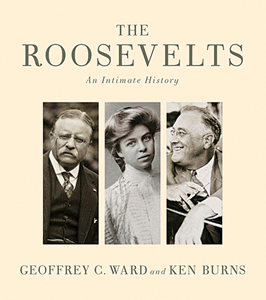
WHILE WORKING ON THE ROOSEVELTS: An Intimate History , our upcoming PBS series and the book that accompanies it, our team found a telling image no one else had ever seen. We knew that Theodore Roosevelt had invited his favorite niece, Eleanor, and his fifth cousin Franklin, her fianc, to join the crowd at his 1905 inauguration. And so when we came upon a glass-plate panoramic view of the throng gathered in front of the Capitol, we went at it with a magnifying glass, and, sure enough, there was the unmistakable profile of the young FDR, peering over the crowd to watch his hero take the oath of office.
That picture seemed to us symbolic of the real but little-understood link between the Democratic Roosevelts of Hyde Park, N.Y., and the Republican Roosevelts of Oyster Bay, N.Y. No family has meant more to American history than the Roosevelts, but by considering its most prominent members in isolation from one another we lose track of the fact that there was far more that united than divided them, that without the great example of Theodore Roosevelt its unlikely that many people would have ever heard of Franklin or Eleanor.
Roosevelts have turned up in many of the films and books weve done over the years, including The National Parks, Baseball, Prohibition and The War , and wed often toyed with the idea of focusing our attention on one or another of the three great Roosevelts. But when we came up with the notion of doing them all as members of one extraordinary family, we knew were on to something.
They belonged to different parties and had very different personalities, but all three Roosevelts shared Theodores belief that national problems demanded national solutions, that, at its best, government was simply what TR first called it: Us you and me.
They were, all three of them, wounded people who somehow transcended what had been done to them. TR suffered from life-threatening asthma as a boy, endured the death of his mother and first wife on the same ghastly day, and championed the strenuous life in part because, for him, prolonged inaction led to deep depression. ER, orphaned as a girl, betrayed as a young wife, plagued by the same demons that drove her uncle Theodore to frenetic action, overcame it all to make herself the most consequential American woman of her time. And FDR, whose charmed career seemed to have been ended by polio at 39, endured seven lonely, painful years struggling simply to take a single step unaided, failed at that, but then found the strength to become the 20th centurys most important president.
They had their share of weaknesses: TRs unsettling enthusiasm for war; the congenital deviousness that angered FDRs enemies and disturbed his allies; the earnest single-mindedness that sometimes made Eleanor less effective than she might have been. And they made mistakes. But as FDR himself said in 1936, Governments can err. Presidents do make mistakes. But the immortal Dante tells us that divine justice weighs the sins of the cold-blooded and the sins of the warm-hearted in different scales.
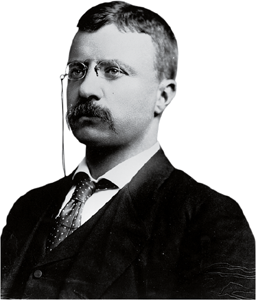
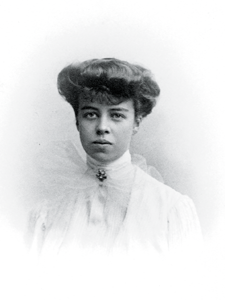
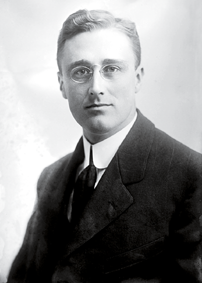
MORE UNITED THAN DIVIDED They belonged to different parties and had very different personalities, but all three were wounded people who transcended what had been done to them.
Theodore and Franklin Roosevelt occupied the White House and dominated American political life for nearly 20 of the first 45 years of the 20th century. During that time they created the modern presidency, altered the old relationship between ordinary citizens and their government and rewrote the countrys role beyond our borders. Their accomplishments seem endless: the Panama Canal, and pure food and drugs, and millions of wild acres preserved for future generations to enjoy; unemployment compensation and Social Security, federal funds to provide electric power to rural America, and federal commitments to the right to bargain, equal opportunity and high employment. All thisand victory in the greatest war in history.
The Roosevelts dealt with great public questions still present in our own lives: What is the role of government? What should a citizen expect of that government? What are the qualities of lasting leadership? What is the correct balance between principle and pragmatism?
But ours really is an intimate history. Seen close up, for all their seeming difference from the rest of ustheir riches, their fame, their historical importancethe Roosevelts seem familiar. But more than that, as individuals they wrestled in their personal lives with issues familiar to everyone everywhere: betrayal and forgiveness, grief and self-doubt, courage and cowardice, loyalty to family and the need to be ones own self.
Whether youre interested in history or human beings, we believe youll come to the same conclusion we have: the Roosevelts are irresistible.
THREE WHO SHAPED THE FUTURE
The Roosevelts legaciesactivist government at home, engagement abroadare still debated. But their lasting influence is beyond question
An Introduction by Richard Lacayo
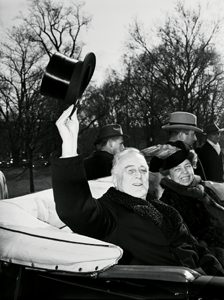
Next page
